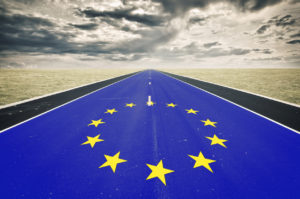 Looking around you, what do you think is the most pressing social challenge in the European Union? Is it about your friend Helen who is actively looking for a job, but doesn’t seem to match the required skills in a fast remodelling of the workplace through digitalisation? Is it about the family Smith that is greatly in need of social housing, but don’t have access to social protection or healthcare in the mainstream system? Is it about John who’s retiring allowance doesn’t cover minimum standards of living? Or is it about today, a car-free day decided by your government in your city because of a pollution peak? In the age of transitions, we need to face many social challenges, such as old-age poverty and justice between generations, in order to avoid indifference or mistrust towards democracy and to determine the future of the European Union. But how do we turn these challenges into opportunities? I believe that it is all about preserving democracy. An active democracy that lives from participation.
Looking around you, what do you think is the most pressing social challenge in the European Union? Is it about your friend Helen who is actively looking for a job, but doesn’t seem to match the required skills in a fast remodelling of the workplace through digitalisation? Is it about the family Smith that is greatly in need of social housing, but don’t have access to social protection or healthcare in the mainstream system? Is it about John who’s retiring allowance doesn’t cover minimum standards of living? Or is it about today, a car-free day decided by your government in your city because of a pollution peak? In the age of transitions, we need to face many social challenges, such as old-age poverty and justice between generations, in order to avoid indifference or mistrust towards democracy and to determine the future of the European Union. But how do we turn these challenges into opportunities? I believe that it is all about preserving democracy. An active democracy that lives from participation.
Participation will only work if it comes both ways. Engaging with citizens on a constant basis is essential to strengthen European identity and democracy. In 2018, 847 citizens’ dialogues took place across Europe, against 317 in 2017 and 53 in 2015.
This week, I had the great privilege and honour to be selected by the European Commission to participate to the Young Citizens’ Dialogue on the Future of Social Europe, which took place in Sibiu one day before the European Summit and the European Day on 9th May. A unique occasion to meet with 350 young people across Europe and dialogue with key EU stakeholders about democracy and today’s most pressing social challenges before the European Elections. I appreciated the speech of Marianne Thyssen, European Commissioner for Employment, Social Affairs, Skills, and Labour Mobility, saying: “We cannot predict the future, but together we can shape the future of Europe”. I believe that a liberal and trustworthy democracy relies on three instruments of participation: (1) A functioning social state that fights effectively against poverty and creates the framework for social participation; (2) The active engagement of all citizens in the democratic institutions and processes; (3) The social work of civil society organisations.
In order to build confidence and trust in democracy, the German Catholic Bishops Conference and the Evangelical Church in Germany (EKD) released last month a joint statement entitled “Strengthening Trust in Democracy“. The EKD office in Brussels organised a conference last week to present this publication. It states that our personal attitude and commitment must not be interest-oriented, but in the pursuit of the common good.
As organisations advocating social justice, Eurodiaconia and its members have expressed their commitment for building trust in society on the occasion of the last Annual General Meeting’s declaration on “Telling truth, changing lives”, in Scotland. This joint commitment is based on “the common hope and willingness to act together” as active members of society, and in turning social challenges into opportunities for people and for the future of social Europe.
Concerned in telling the truth about local realities in order to ask for a change to European stakeholders, Eurodiaconia has also launched a voting campaign “#TIMETOVOTE”, anticipating the European Elections of 23-26 May, and inviting each EU citizen, especially younger people, to vote. Because, as Commissioner Thyssen reminded young citizens this week: “Your social Europe is about People”. It is about Helen, family Smith, John, you, and the way you engage towards all of them, that will determine the future of Europe.
Have a good weekend,
Alix